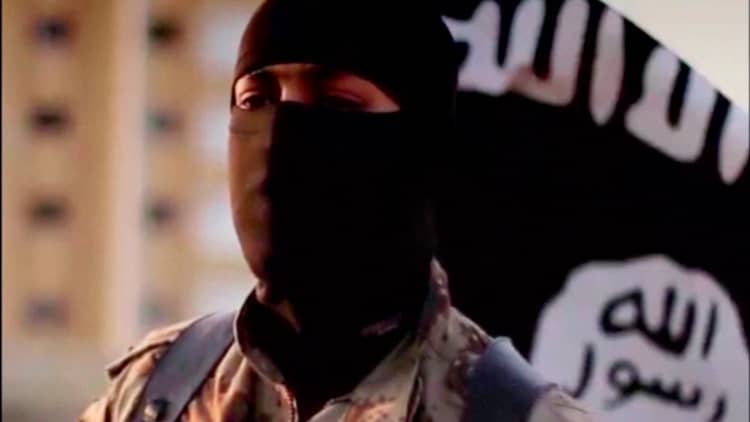
As President Barack Obama angles for authorization to fight Islamic State militants in Iraq and Syria, the extremist group may be seizing new territory right in Europe's backyard—which has some countries, especially Italy, nervous.
Reports surfaced of Libyan groups affiliating with the Islamic State (also called ISIS, or ISIL) in the middle of 2014, but the group did not cause much of a stir in the war-torn nation until it seized the 100,000-person city of Derna. In recent days, its Libyan branch has apparently grown more brazen, seizing a university in the coastal city of Sirte, and slaughtering 21 Egyptian Coptic Christians.
Egypt responded with airstrikes against the group's Derna stronghold (and allegedly conducted special forces ground operations), but the U.S. has declined to support or condone the move.
The jihadist organization may even be spreading further across North Africa, as some reports suggest groups with allegiance to ISIS may already operate in Tunisia and Algeria.
To Libya's north—and across the Mediterranean—Italian officials are issuing warnings about ISIS' potential gains in the region, and reportedly briefly threatened military intervention. In the video showing the deaths of the 21 Egyptians, a militant speaking in fluent English said his group "will conquer Rome, by the will of Allah." The Christian murder victims were made to kneel in the water facing north toward Italy as they were decapitated.
Read MoreEgypt bombs IS Libya targets after killings
Despite these pronouncements, it is not clear how many of ISIS' supposed gains in the region are real, said Kamran Bokhari, a Middle East adviser for global intelligence firm Stratfor.
"They know how to spin the media, they know how to work it: They have a bunch of people wave the flag somewhere and have people pledge allegiance to the so-called caliph via Twitter or Facebook or YouTube," he told CNBC. "Anybody can do that, but that doesn't prove that they're really gaining ground in a particular area."
According to Bokhari, the only certainty about ISIS is that it is fighting on multiple fronts just to maintain the land it has already seized in Iraq and Syria.
"In light of all of this, I just don't see how a group that is trying to sustain its territory can possibly expand to AfPak [Afghanistan and Pakistan] or Libya," Bokhari said, explaining that the terrorists in Libya seem more likely to be loosely affiliated locals.
Additionally, he said, the "jihadi market is so saturated" in the embattled North African country, that ISIS is unlikely to easily win ground. Explaining that he understood the need for governments to assume worst-case scenarios, Bokhari said that some of the comments coming from European officials is "almost paranoia."
Still, even if ISIS is not prepared to launch a navy to cross the Mediterranean into Italy, the group's position in Libya could cause some new headaches for Europe, experts said.
Read More I'm worried about ISIS threat in US: Scott Walker
The largest concern will be that the North African country becomes a training ground and safe haven for ISIS-affiliated terrorists, said Christopher Chivvis, associate director of the International Security and Defense Policy Center and a senior political scientist at the RAND Corporation.
European intelligence organizations are already "spread pretty thin" keeping track of possible extremists within their own borders and those coming in from Turkey, he said, so chaos in Libya is a "significant problem" for them.

Another problem with an increasingly chaotic Libya is that it's likely to even further damage oil production in the region, Chivvis said.
As for solutions, no option has a strong likelihood of easy success. Chivvis said that there could either be a likely U.S.-led military campaign in the country, a coordinated effort of backing more moderate factions or a peace agreement brokered by the international community. The latter would probably see the best results, he said, especially if it were coupled with robust counterterrorism operations and a stabilization force.
Read MoreObama: 'Only one option' against ISIS
Backing any one faction would have the potential to just exacerbate the violence, because there is no single group in a good position to achieve stability on its own, Chivvis said, adding that it is unlikely the U.S. would commit the necessary forces for a successful military campaign.
—Reuters contributed to this report.


